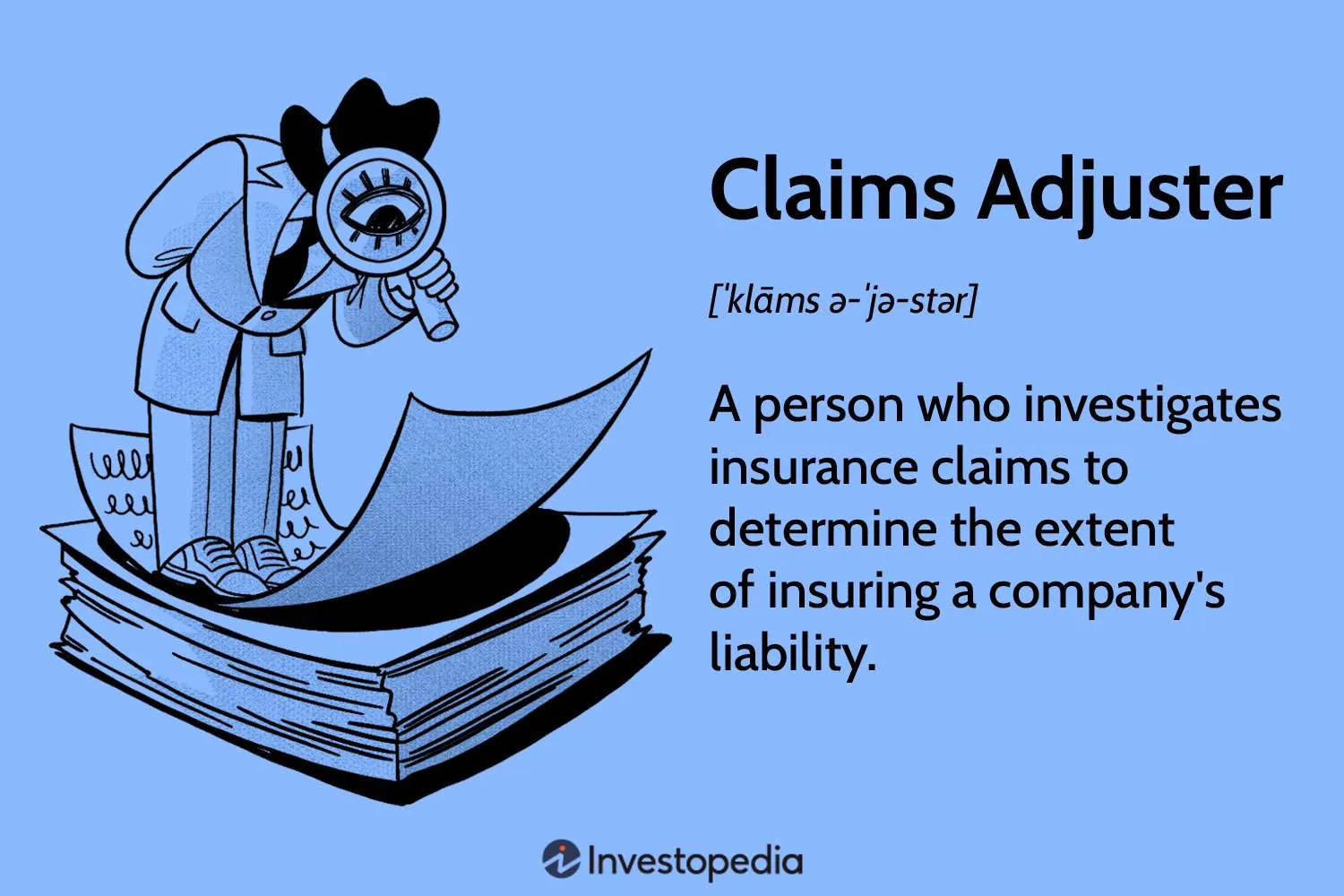- 1. Research the Field
- 2. Understand the Requirements of Insurance Adjuster
- 3. Obtain the Necessary Education and Training
- 4. Gain Relevant Work Experience
- 5. Obtain Licensure or Certification
- 6. Network within the Industry
- Skills and Qualities of a Successful Insurance Adjuster
- Types of Insurance Adjusters
- Job Opportunities for Insurance Adjusters
- Salary and Benefits
- Challenges and Rewards of the Profession
- Conclusion
- FAQs
Have you ever considered a career in insurance? If you have excellent attention to detail, strong communication skills, and a knack for problem-solving, becoming an insurance adjuster might be the perfect fit for you. Insurance adjusters play a crucial role in assessing and evaluating insurance claims, determining the amount of compensation to be paid to policyholders. In this comprehensive guide, we will walk you through the steps to becoming an insurance adjuster, the necessary skills and qualities, the various types of insurance adjusters, job opportunities, salary and benefits, as well as the challenges and rewards of this profession.
1. Research the Field
Before diving into any career path, it’s essential to conduct thorough research. Learn about the insurance industry, understand the role of insurance adjusters, and familiarize yourself with the responsibilities they handle. Gain insights into the different types of insurance, such as property, casualty, and auto insurance, as adjusters work in various fields.
2. Understand the Requirements of Insurance Adjuster
To become an insurance adjuster, you need to meet certain requirements. While the specific requirements may vary by jurisdiction, most states require a high school diploma or equivalent. Some states may also require additional education or experience. It’s crucial to understand the specific requirements set by your state’s insurance department.
3. Obtain the Necessary Education and Training
Although a college degree is not always mandatory, acquiring relevant education can greatly enhance your chances of success in this field. Consider pursuing a degree in insurance, business, or a related field. Additionally, completing courses in claims adjusting, risk management, and insurance policy interpretation can provide you with a solid foundation of knowledge.
4. Gain Relevant Work Experience
While education is essential, gaining practical experience is equally important. Seek internships, entry-level positions, or volunteer opportunities in insurance companies or adjusting firms to gain hands-on experience in the field. This will help you understand the day-to-day responsibilities of an insurance adjuster and build a network of industry contacts.
5. Obtain Licensure or Certification
Most states require insurance adjusters to be licensed. To obtain a license, you will need to pass a state-specific exam. Some states also require applicants to complete pre-licensing education courses. Additionally, pursuing professional certifications, such as the Chartered Property Casualty Underwriter (CPCU) designation, can enhance your credibility and open doors to advanced career opportunities.
6. Network within the Industry
Networking plays a vital role in any profession, and insurance adjusting is no exception. Attend industry events, join professional organizations, and connect with experienced adjusters. Building relationships with industry professionals can provide valuable insights, mentorship opportunities, and potential job leads.
Skills and Qualities of a Successful Insurance Adjuster
To excel as an insurance adjuster, certain skills and qualities are crucial. These include:
- Attention to Detail: Insurance adjusters must meticulously review insurance policies, assess damages, and document all relevant information accurately.
- Strong Communication Skills: Effective communication is essential for dealing with policyholders, witnesses, and other parties involved in the claims process.
- Analytical and Investigative Abilities: Adjusters need to gather and analyze information, evaluate claims, and make fair and accurate assessments.
- Negotiation Skills: Adjusters often negotiate settlements with claimants, requiring strong negotiation and persuasion abilities.
- Time Management and Organizational Skills: Handling multiple claims simultaneously requires excellent time management and organizational skills.
Types of Insurance Adjusters
Insurance adjusters can work in different capacities. The three main types are:
- Staff Adjusters: Employed by insurance companies, staff adjusters handle claims on behalf of the company they work for.
- Independent Adjusters: Independent adjusters work on a contractual basis and are hired by insurance companies to handle claims temporarily.
- Public Adjusters: Public adjusters work directly for policyholders, representing their interests during the claims process. They help policyholders maximize their claim settlements.
Job Opportunities for Insurance Adjusters
Insurance adjusters can find employment opportunities in various settings, including:
- Insurance Companies: Many insurance companies employ in-house adjusters to handle claims within their organization.
- Independent Adjusting Firms: These firms specialize in providing adjusting services to insurance companies on a contract basis.
- Self-Employment as a Public Adjuster: With the necessary licenses and experience, you can start your own public adjusting business, working directly with policyholders.
Salary and Benefits
The salary of an insurance adjuster can vary based on factors such as experience, location, and the type of adjusting performed. Entry-level adjusters typically earn a moderate salary, while experienced adjusters have the potential to earn a substantial income. Additionally, insurance adjusters often receive benefits such as health insurance, retirement plans, and paid time off.
Challenges and Rewards of the Profession
Like any career, insurance adjusting comes with its own set of challenges and rewards. Some of the challenges include handling difficult clients, working under tight deadlines, and managing high-stress situations. However, the rewards include opportunities for career growth, the satisfaction of helping people in times of need, and the potential for financial stability.
Conclusion
Becoming an insurance adjuster requires a combination of education, training, experience, and personal skills. By following the outlined steps, you can embark on a rewarding career in the insurance industry. Whether you choose to work as a staff adjuster, an independent adjuster, or a public adjuster, this profession offers a unique opportunity to make a difference in people’s lives during challenging times.
FAQs
1. How long does it take to become an insurance adjuster?
The time it takes to become an insurance adjuster can vary based on your education, training, and state requirements. On average, it can take several months to a year to complete the necessary steps.
2. Can I become an insurance adjuster without a college degree?
Yes, a college degree is not always mandatory to become an insurance adjuster. However, relevant education and training can significantly improve your prospects in this field.
3. Are there opportunities for career advancement as an insurance adjuster?
Yes, there are ample opportunities for career advancement as an insurance adjuster. With experience and additional certifications, you can move into management positions or specialize in specific areas of claims adjusting.
4. What are the main challenges faced by insurance adjusters?
Insurance adjusters may face challenges such as handling difficult clients, working in high-stress situations, and managing a large volume of claims simultaneously.
5. How do insurance adjusters benefit policyholders?
Insurance adjusters help policyholders navigate the claims process, ensuring fair and timely settlements. They advocate for policyholders’ interests and provide expert guidance throughout the process.









